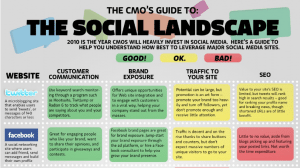 With new social networks and tools springing up almost daily, it’s easy to feel overwhelmed. Foursquare or Gowalla? Ning or Newsvine? Every time I turn around it seems there’s something new to try, but I’m already having trouble keeping up with the networks I’m committed to: Twitter, Facebook and YouTube. What to do?
With new social networks and tools springing up almost daily, it’s easy to feel overwhelmed. Foursquare or Gowalla? Ning or Newsvine? Every time I turn around it seems there’s something new to try, but I’m already having trouble keeping up with the networks I’m committed to: Twitter, Facebook and YouTube. What to do?
1. “Be an early tester but a late adopter,” says digital guru Sree Sreenivasan. “Find what works for you and ignore the rest.” Just hearing him say that at an NPR seminar this week made me feel so much better. So it’s okay if I’m not on Foursquare? You bet. Neither is Sreenivasan.
2. Understand the landscape. Learn the pros and cons of the biggest social media sites so you can use them better. This graphic from a marketing site built by a couple of college students is a great place to start.
3. Stay informed. “Change your media diet,” advises Sreenivasan. He checks Mashable six times a day. Me, I just follow the Twitter feed. Use MuckRack to find other journalists to follow, and check the other Twitter directories listed across the top of the Muckrack page, including tech, science and colleges, that may be useful for beat reporters.
4. Create lists. Both Twitter and Facebook make this easy. Put people you follow into categories so you can quickly check for updates that are most relevant to what you’re working on. Find new people to follow on Twitter using Twiangulate, a site that helps you find folks that other users follow in common.
5. Don’t flood the zone. Use a tool like HootSuite that lets you save drafts and schedule updates on multiple networks and from multiple profiles, all at once. Setting time aside for social media is much less stressful than trying to find time to post updates all day long. And besides, by spreading things out you’ll avoid annoying your friends and followers by clogging their feeds.
6. Lose the guilt. There’s no reason whatsoever to worry about what you miss on Twitter or Facebook. It’s not email. You don’t have to check it all day long and respond within nanoseconds. No one will ever know.
Isn’t that a relief?









2 Comments
Except many police and fire departments, and other organizations that you rely on to get information are now using Twitter as the preferred way to get info about things like wildfires and car accidents out.
If the FD is live blogging a wildfire that’s threatening homes on Twitter, and you miss it because you weren’t keeping an eye on Twitter, someone will know.
Fair point, Chris, and thanks for the comment. I’m talking here mainly about individuals, however, not news organizations. You are absolutely right that a newsroom should monitor Twitter at all times, especially local sources. I’ll write soon about my favorite tools for doing that, so if you have some to recommend, please weigh in.